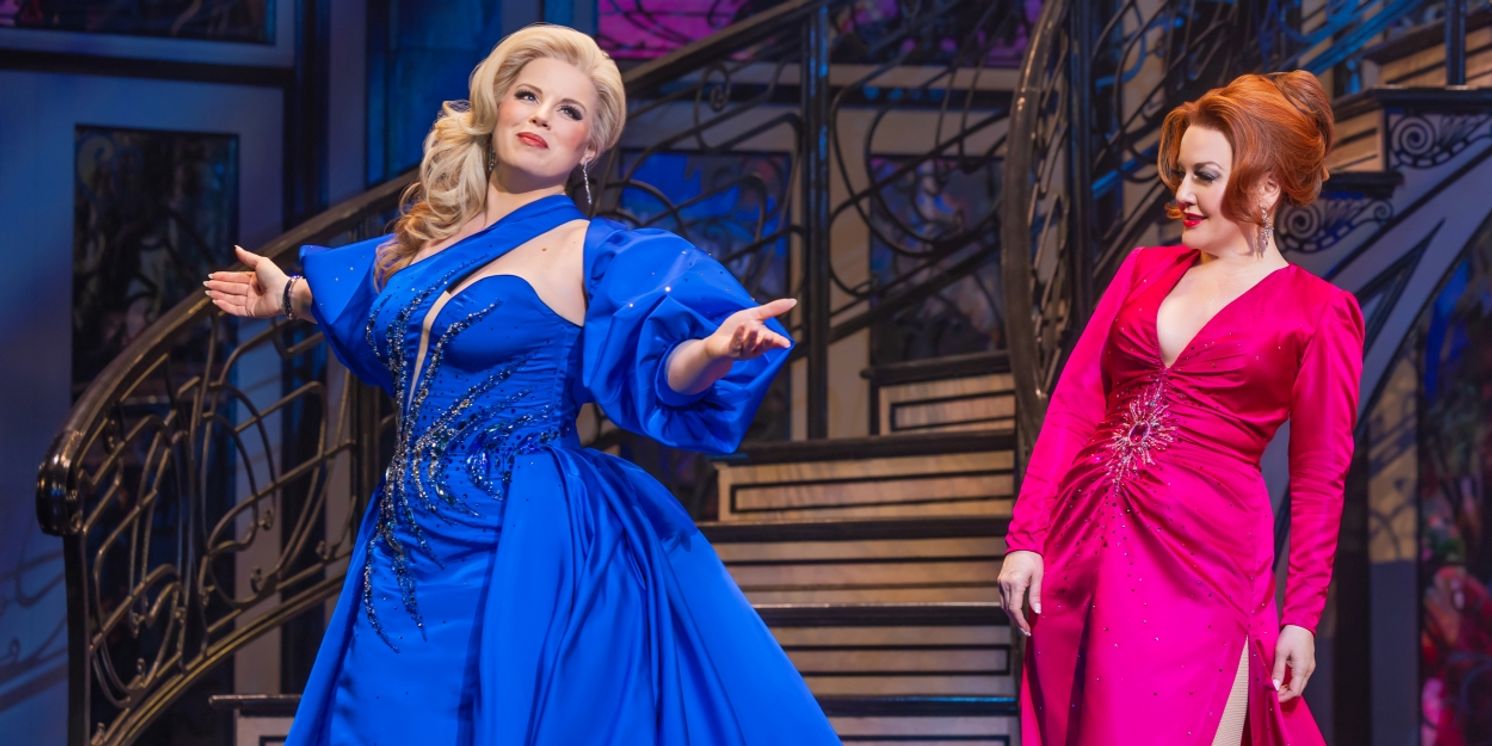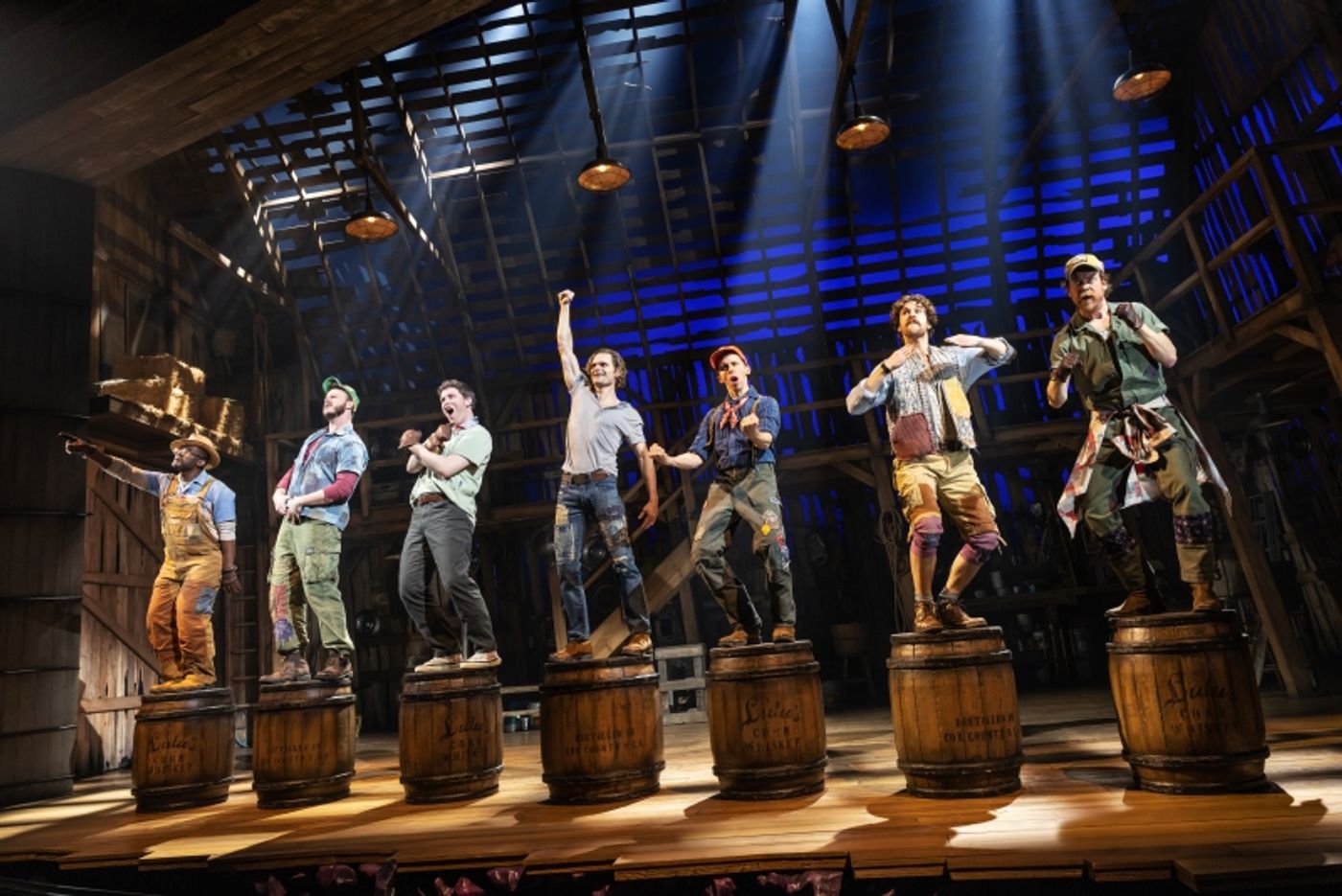How Often Do Broadway Writing Teams Share Credits?
Jennifer Ashley Tepper Is answering your questions with Broadway Deep Dive!

Do you have a burning Broadway question? Dying to know more about an obscure Broadway fact? Broadway historian and self-proclaimed theatre nerd Jennifer Ashley Tepper is here to help with her new series, Broadway Deep Dive. Every month, BroadwayWorld will be accepting questions from theatre fans like you. If you're lucky, your question might be selected as the topic of her next column!
Submit your Broadway question in the comments here!
This time, the reader question was: How often do Broadway writing teams share credits for both music and lyrics?
Next month, the much-anticipated Broadway musical Death Becomes Her begins previews at the Lunt-Fontanne Theatre. The musicalization of the beloved film that starred Goldie Hawn and Meryl Streep has a book by Marco Pennette and music and lyrics by Julia Mattison and Noel Carey. Mattison and Carey have been writing together for over a decade, including their original musical comedy for Audible which played off-Broadway, Is Anyone Alive Out There? and their hit web series Brooklyn Sound.
It is somewhat rare for the team penning a Broadway musical’s score to share credit for both music and lyrics. The seamless collaboration required for this credit is less frequently seen than billing that finds one half of a duo composing the music and the other half writing the lyrics.
However, in recent Broadway history, several of the most beloved and successful musicals that have hit the main stem have boasted these credits. Benj Pasek and Justin Paul, who recently achieved EGOT status, having become Emmy, Grammy, Oscar, and Tony winners, share both score credits on the Tony Award-winning Dear Evan Hansen as well as on their first Broadway musical, A Christmas Story. Like Mattison and Carey, Pasek and Paul have been writing together since college, which may partially explain their method of collaboration.
The current Broadway juggernaut Six boasts music and lyrics written in tandem by Toby Marlow and Lucy Moss. Moss became the youngest female director of a Broadway musical in history with Six. Marlow and Moss are also on the impressively young end of the spectrum as far as writers of a hit Broadway musical; Marlow was 25 and Moss 26 when Six started previews at the Lena Horne Theatre, featuring the ex-wives of Henry VIII each telling their own empowered story.
%20SixBway0415r.jpg?format=auto&width=1400)
On both of his hit Broadway musicals, Robert Lopez fully shares both music and lyric credit with his co-writer. Lopez, one of our other living EGOT winners, wrote the Tony Award-winning Avenue Q score with Jeff Marx, which took Broadway by storm in 2003 and became an unexpected long-running smash. In 2018, Lopez returned to Broadway with the stage version of Frozen, for which he co-wrote music and lyrics with Kristen Anderson-Lopez. Lopez and Anderson-Lopez are responsible for the mega-popular score of the Disney film, from “Let It Go” to “Love Is An Open Door”, which became a favorite in households across America prior to being heard at the St. James.
In 2006, The Drowsy Chaperone, a musical with the distinction of being based on a bachelor/ bachelorette party entertainment, found Lisa Lambert and Greg Morrison sharing both music and lyric credits. The team won the Tony Award for Best Score for their whimsical, hilarious tunes, paying homage to classic 1920s Broadway. One of the most beloved Broadway shows of the current century is Legally Blonde (2007), and the empowering, intelligent, fun pop-influenced score is the work of Nell Benjamin and Laurence O’Keefe. While a good amount of the music-and-lyrics duo teams chronicled here either have written together since an early age and/or are married to each other, Karey and Wayne Kirkpatrick, who penned the gut-bustingly funny score to Something Rotten! (2015), are a rare sibling team sharing credit. The doc-musical Come From Away (2017) has an incredibly meaningful and soaring score and book that are both the combined work of David Hein and Irene Sankoff.
Other Broadway musicals in the current century that featured scores written seamlessly by a duo are Cry-Baby (2008) by David Javerbaum and Adam Schlesinger, which marked the sole Broadway musical credit by the brilliant Schlesinger, KPOP (2022) by Helen Park and Max Vernon, which made history in bringing Korean music and culture to the stage, and Shucked (2023) by Brandy Clark and Shane McAnally, which is currently on tour across America.

Prior to the 21st century, it was far more rare for musicals to have music and lyric credits fully shared by a duo. One reason for this is that musicals often took significantly less time to be developed. When a musical is workshopped over the course of many years, the writing becomes inherently more collaborative and the determination of who wrote what becomes more blurry. In the 20th century, when musicals often went from page to stage in less than 2 years, writers were more likely to stay in one lane and not co-write both music and lyrics together. However, there are a few examples of Broadway teams that were the exception.
Hugh Martin, the writer best known for the song “Have Yourself a Merry Little Christmas” is one of these exceptions. His Broadway credits include Best Foot Forward (1941) and Meet Me in St. Louis (1990) where he co-wrote both music and lyrics with Ralph Blane. Meet Me in St. Louis’ score includes the aforementioned “Have Yourself a Merry Little Christmas” as well as “The Boy Next Door” and “The Trolley Song”. Martin also co-wrote both music and lyrics with Timothy Gray for the musical High Spirits (1964), based on the play Blithe Spirit. On two Broadway shows, Martin was the sole writer of music and lyrics: Look, Ma, I’m Dancin’! (1948) and Make a Wish (1951). To have fully co-written music and lyrics with a collaborator and also fully penned Broadway scores alone is definitely uncommon.
The two successful but rarely-revived hit 1960s musicals Stop The World - I Want to Get Off and The Roar of the Greasepaint - The Smell of the Crowd were the work of British team Leslie Bricusse and Anthony Newley. Bricusse and Newley wrote both music and lyrics for these two shows as well as for the film Charlie and the Chocolate Factory, later made into a Broadway musical (that features songs not from the movie with lyrics by Marc Shaiman and Scott Wittman and music by Shaiman). Newley also directed and starred in both Stop The World and Greasepaint. Bricusse’s other Broadway credits include book and lyrics for Jekyll and Hyde (1997) which has music by Frank Wildhorn and lyrics for Victor/Victoria (1995), which has book by Blake Edwards, music by Henry Mancini, and additional songs by Wildhorn.
Also during the 20th century, the lesser remembered musical Copperfield (1981) had music and lyrics by Joel Hirschhorn and Al Kasha. Hirschhorn and Kasha were Tony Award-nominated for Best Score for their songs for the show based on the book David Copperfield by Charles Dickens. Unfortunately the show, which closed after only 13 performances, never received a cast album.
Comments
Videos

